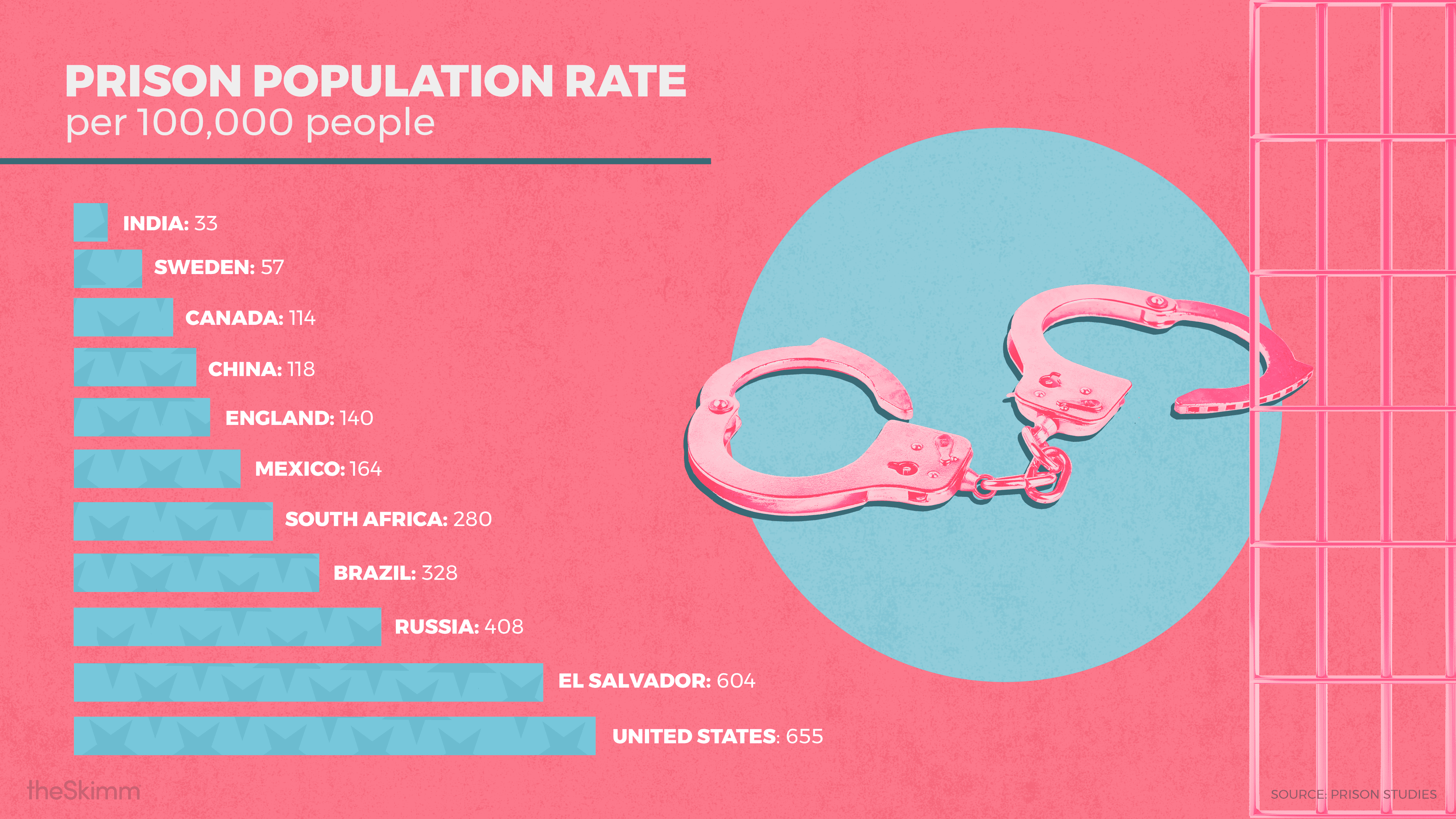The Story
Criminal justice reform is something both parties have wanted to tackle for a while. It might happen this year.
Explain.
In the last few decades, the incarceration rate has quadrupled. Not a typo. The US only has about 5% of the world’s population, but about 25% of the world’s prison population. In 2008, about one in 100 adults in the US were behind bars – and many of them were nonviolent offenders (think: committed crimes like drug possession or theft). Keeping jails up and running is expensive...as in billions of dollars. Guess who’s footing the bill? Taxpayers.

So what’s the issue?
Many prisons and immigration detention centers are run by private companies. They’re typically more
than public prisons. Part of it has to do with the fact that they’re run like businesses...which can lead to cutting costs and staff that can lead to bad conditions. The Obama administration made moves to start
. But Attorney General Jeff Sessions rolled back those changes. It may or may not have to do with the fact that two of the largest private-prison contractors – GEO Group and CoreCivic – donated
to the Trump campaign. A number of other Republicans have gotten financial backing from these types of companies, which could affect certain laws that they work on and vote for.
What’s the latest?
In May, the House passed a prison reform bill that would support programs meant to keep offenders from committing another crime. The White House supported it. The Senate, not so much. That’s because the House bill didn’t lower mandatory sentencing – which could drastically cut down how many people are in federal prisons. TBD on whether the Senate votes on it.
What does the left say?
The criminal justice system is way too harsh. We need to stop locking up nonviolent offenders and do a better job transitioning former inmates into society.
What does the right say?
The criminal justice system is way too harsh. Some say we need to stop locking up nonviolent offenders. Others say it all depends on the crime. Either way, we can do a better job transitioning former inmates into society.
What can my elected reps do?
— Your
US senator or rep
can pass legislation that would reduce or get rid of prison sentences for nonviolent offenders
— Your
governor or state rep
can work on legislation that would put more money towards programs that help ex-felons transition back into society. They can also pass a law that requires police to wear body cameras while on duty
— Your
mayor
can make sure police officers go through bias training, and make sure there are programs that allow police officers to meet with people in the community to build relationships and trust
theSkimm
High incarceration rates can disproportionately affect minorities, put people who shouldn’t be in jail behind bars, be expensive for taxpayers, and the list goes on. In one way or another, this affects pretty much everyone – whether you know someone in jail or are a US taxpayer.
Live Smarter
Sign up for the Daily Skimm email newsletter. Delivered to your inbox every morning and prepares you for your day in minutes.
